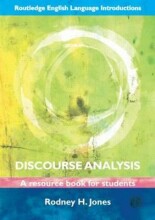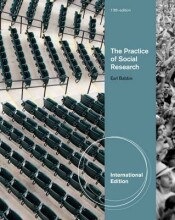Summary: Discourse Analysis A Resource Book For Students | 9780415610001 | Rodney Jones
- This + 400k other summaries
- A unique study and practice tool
- Never study anything twice again
- Get the grades you hope for
- 100% sure, 100% understanding
Read the summary and the most important questions on Discourse Analysis A Resource Book For Students | 9780415610001 | Rodney Jones
-
1 A1 WHAT IS DISCOURSE ANALYSIS
This is a preview. There are 1 more flashcards available for chapter 1
Show more cards here -
What are the four assumptions of Discourse analyses
Language is ambiguous" is in the world" never used all by itselfThe language we use depends on the group we are in -
1.1 B1 Three ways of looking at discourse
This is a preview. There are 1 more flashcards available for chapter 1.1
Show more cards here -
What are three perspectives on discourse
Formal (grammer, sentence constructs), functional / use (how people use language to make actions happen) and social (social interactions / who has power over who) -
Who was the first to come with the term Discourse Analyses
Zellig Harris in the 1950's -
How can we study the use of language (functional)
Exploring when we say / write things what we actually are doing (apologising)If the way we use discourse makes making actions happen easier or more difficult.The way we communicate our interpretation or try to manage our relationship with others. -
Who said: 'discourse is the main tool through which we construct ‘knowledge’ and exert power over other people'
Michel Foucault -
What four kinds of discourse did Michel Foucault seperate
Different kinds of discourse (or ‘discourses’) are associated with different kinds of people and different ‘systems of knowledge’.Foucault spoke, for example, of ‘clinical discourse, economic discourse, the discourse of natural history, (and) psychiatric discourse’ -
What is the downside of these three kinds of discourse
You can never look at just one of them: you should look at more. -
2 A2 TEXTS AND TEXTURE
This is a preview. There are 3 more flashcards available for chapter 2
Show more cards here -
What lets a text make sense?
ContextRelationshipStructure -
What is a symantic field / group?
Words that belong together? -
What is a tekst framework
A framework we can out the tekst in. Shopping list for example.
- Higher grades + faster learning
- Never study anything twice
- 100% sure, 100% understanding
































